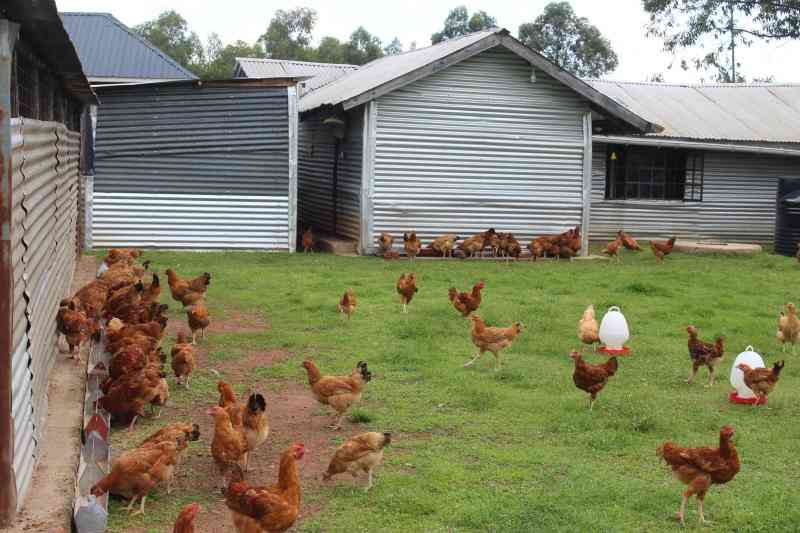×
The Standard e-Paper
Fearless, Trusted News

Mr Kennedy Ogutu (ASDSP County Coordinating) (left) and MrsRose Adinda ASDSP Value chain development officer (Right) during their visit to a poyltry farm in Rapogi village in Uriri sub-County [Caleb Kingwara, Standard]
Modern poultry farming in Kenya began after independence, starting as a cottage practice providing kitchen table needs. For many years it became the only cheap source of nutrition for poor families back in the days.